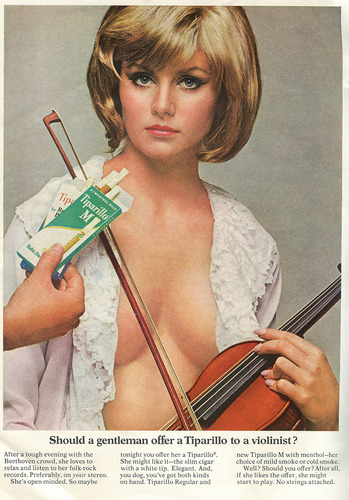
These old adverts demonstrate the lines that companies crossed in order to sell a product. Now considered highly offensive and sexsist the adverts illustrate a time where the industry was dominated by skewed attitudes towards gender, race, sex and health.
As much as I enjoy these old adverts, the use of sexual imagery in advertising is pacifying negative sterotypes and promoting attitudes that it is ok to objectify women.
"An effective advertisement works best when it strikes a chord in the needs and desires of the receiving consumer. Advertising is seen as “the manipulation of social values and attitudes through which false needs and desires are disseminated with the aim of regenerating desire for the consumption of an ever- increasing volume and diversity of goods” (Cronin 55). Today’s gimmicks are getting more aggressive and shameless. We have to mind what we are doing in the world of advertising because we can suddenly be victims of propagandas and dissatisfied consumers, but what is more important, it could happen to us that we become negative and immune against all the flowing information and as not having orientation among the information we cannot select the necessary ones to us. The word, advertising is revealing. It comes from the Latin ‘adverto’ which means: ‘turn one’s attention to something’. The meaning obviously puts the emphasis on what is the essence of ads and what is the most impressive tool of them: ads must draw the buyers’ attention. There are three fundamental functions of the advertisements: to inform, to convince, and to remind. The ad, as one of the tools of media, gives us a schematic image about our society. On the one hand, advertisements portray our present lives. On the other hand, they show an ideal society as well. Ads have an enormous influence on us and they play an important part in supporting the gender stereotypes and the traditional female and male roles."
No comments:
Post a Comment